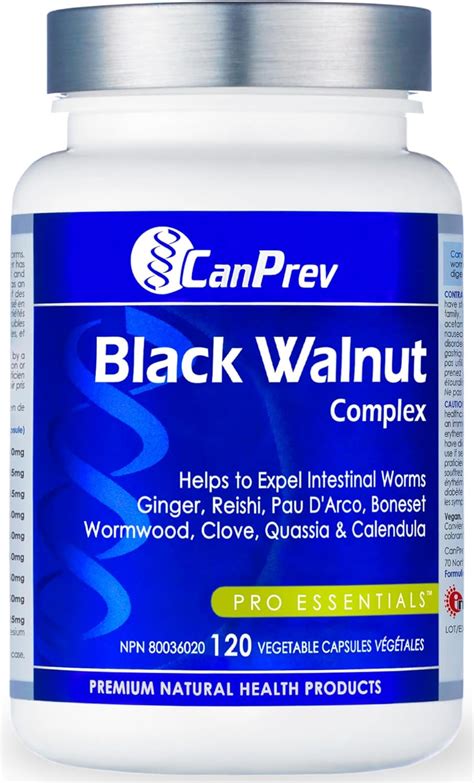The black walnut, native to Eastern North America, has been a prized ingredient in traditional medicine for centuries. Its unique combination of nutrients and compounds has made it a subject of interest in modern health and wellness circles. From its potential to combat certain diseases to its role in supporting overall health, the benefits of black walnut are multifaceted and compelling. As we delve into the world of black walnut health benefits, it becomes clear that this ancient remedy has a lot to offer in terms of preventive care and therapeutic applications.
The black walnut tree, known scientifically as Juglans nigra, is a member of the walnut family. Its edible nuts are rich in healthy fats, proteins, and fiber, making them a nutritious snack. However, the health benefits of black walnut extend beyond its nutritional value. The hulls of the nuts, which are often used in herbal medicine, contain a variety of bioactive compounds, including juglone, tannins, and flavonoids. These compounds have been studied for their antioxidant, anti-inflammatory, and antimicrobial properties, suggesting that black walnut could play a role in managing and preventing various health conditions.
As research continues to uncover the potential health benefits of black walnut, it's essential to explore the different aspects of its use in health and wellness. From its historical use in traditional medicine to its modern applications, understanding the benefits and mechanisms of black walnut can help individuals make informed decisions about their health. Whether you're looking to incorporate black walnut into your diet or explore its therapeutic potential, this comprehensive overview aims to provide a detailed insight into the world of black walnut health benefits.
Introduction to Black Walnut
The black walnut tree is a deciduous tree that grows up to 100 feet tall, with a broad, rounded crown and dark, furrowed bark. Its leaves are large and compound, consisting of 15-23 leaflets that are dark green on top and pale underneath. The tree produces small, green flowers in the spring, which are followed by the development of its famous nuts. Black walnut nuts are encased in a thick, green hull that turns black as the nut matures. The hull is typically removed before eating or using the nut for medicinal purposes.
Black Walnut Nutritional Value
Black walnuts are a nutrient-rich food, providing a good source of healthy fats, proteins, and fiber. One ounce of black walnuts (approximately 14 halves) contains:
- 18g of fat, primarily polyunsaturated and monounsaturated
- 4g of protein
- 2g of fiber
- 1g of carbohydrates
- Various vitamins and minerals, including vitamin E, vitamin B6, and magnesium
The nutritional profile of black walnuts makes them an excellent addition to a healthy diet, supporting heart health, satiety, and digestive health.
Health Benefits of Black Walnut
The health benefits of black walnut are diverse and can be attributed to its nutritional value and bioactive compounds. Some of the key benefits include:
- **Antioxidant Properties**: Black walnuts contain a variety of antioxidants, including polyphenols and juglone, which can help protect against oxidative stress and inflammation in the body.
- **Heart Health**: The healthy fats, fiber, and antioxidants in black walnuts support heart health by reducing cholesterol levels, improving blood lipid profiles, and preventing the formation of blood clots.
- **Anti-Inflammatory Effects**: The bioactive compounds in black walnut have been shown to exhibit anti-inflammatory properties, which may help manage conditions such as arthritis, diabetes, and certain types of cancer.
- **Antimicrobial Properties**: Black walnut has been traditionally used to treat infections and support immune function due to its antimicrobial properties.
Black Walnut and Cancer Prevention
Research has suggested that the bioactive compounds in black walnut may have a role in cancer prevention. The antioxidants and anti-inflammatory compounds in black walnut may help protect against DNA damage, reduce the risk of tumor formation, and inhibit the growth of cancer cells. While more research is needed to fully understand the potential of black walnut in cancer prevention, the existing evidence is promising.
Black Walnut and Digestive Health
The hulls of black walnuts have been traditionally used to treat various digestive issues, including constipation, diarrhea, and intestinal parasites. The tannins and juglone in black walnut may help reduce inflammation in the digestive tract, improve the balance of gut bacteria, and eliminate harmful organisms. Additionally, the fiber content in black walnuts can support healthy bowel movements and prevent conditions such as diverticulitis and hemorrhoids.
Using Black Walnut for Health
Black walnut can be incorporated into your diet and health routine in various ways:
- **Eating Black Walnuts**: Enjoy black walnuts as a snack, add them to salads, or use them in baking.
- **Black Walnut Supplements**: Consider taking black walnut supplements in the form of capsules, tablets, or tinctures.
- **Black Walnut Tea**: Make a tea by steeping dried black walnut hulls in hot water to support digestive health and immune function.
- **Topical Applications**: Use black walnut oil or tincture topically to support skin health and reduce inflammation.
Precautions and Side Effects
While black walnut is generally considered safe, there are some precautions and potential side effects to be aware of:
- **Allergic Reactions**: Some individuals may be allergic to black walnut, which can cause symptoms such as hives, itching, and difficulty breathing.
- **Interactions with Medications**: Black walnut may interact with certain medications, including blood thinners and diabetes medications.
- **Pregnancy and Breastfeeding**: Due to the lack of research, it's recommended that pregnant and breastfeeding women consult with their healthcare provider before using black walnut.
Conclusion and Future Directions
As we continue to explore the health benefits of black walnut, it's essential to recognize the potential of this ancient remedy in modern health and wellness. From its nutritional value to its bioactive compounds, black walnut offers a unique combination of benefits that can support overall health and prevent certain diseases. While more research is needed to fully understand the effects of black walnut, the existing evidence is promising. As with any supplement or herbal remedy, it's crucial to consult with a healthcare provider before using black walnut, especially if you have any underlying health conditions or are taking medications.
We invite you to share your thoughts and experiences with black walnut in the comments below. Have you incorporated black walnut into your diet or health routine? What benefits have you noticed? Share this article with friends and family who may be interested in learning more about the health benefits of black walnut.
What are the nutritional benefits of black walnuts?
+
Black walnuts are a rich source of healthy fats, proteins, and fiber, making them an excellent addition to a balanced diet. They contain various vitamins and minerals, including vitamin E, vitamin B6, and magnesium.
Can black walnut help with cancer prevention?
+
Research suggests that the bioactive compounds in black walnut may have a role in cancer prevention by protecting against DNA damage, reducing the risk of tumor formation, and inhibiting the growth of cancer cells.
How can I incorporate black walnut into my diet?
+
Black walnut can be enjoyed as a snack, added to salads, or used in baking. You can also consider taking black walnut supplements or making a tea by steeping dried black walnut hulls in hot water.
Are there any potential side effects of using black walnut?
+
While black walnut is generally considered safe, some individuals may experience allergic reactions or interactions with certain medications. It's essential to consult with a healthcare provider before using black walnut, especially if you have any underlying health conditions or are taking medications.
Can I use black walnut during pregnancy or breastfeeding?
+
Due to the lack of research, it's recommended that pregnant and breastfeeding women consult with their healthcare provider before using black walnut.








